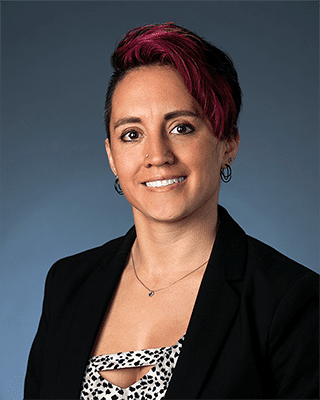If you and your spouse want to live apart, but do not want to divorce, you may choose to file for a legal separation while you consider the next step in your marital relationship.
Shapiro Family Law can help you obtain a legal separation agreement that protects your family’s stability with our Denver legal separation attorneys.
Contact us today at 303-695-0200 to schedule an appointment with a legal separation lawyer in Denver. You can expect nothing less than the best at Shapiro Family Law when you work with our proficient attorneys and paralegals on your legal separation case.
We represent clients in the greater Denver area and throughout Colorado.
The Difference Between a Divorce and a Legal Separation
A divorce legally ends a marriage, which is why Colorado’s domestic statutes call divorce a “dissolution of marriage.” Divorce allows individuals to remarry if they so choose. A legal separation does not end a marriage. This means couples cannot remarry because they are still married to each other during a legal separation. A legal separation accomplishes everything a divorce does, except that it does not end your marriage.
Why Couples Decide to Legally Separate Instead of Divorce
Couples want a legal separation for various reasons. Some people opt for a legal separation for religious or moral reasons, or they want to keep their medical insurance coverage or retirement benefits. Other couples may see this as a “trial divorce” to determine whether they want to dissolve their marriage after a certain period of time. In some cases, a legal separation may help a couple reconcile and live together again.
Legal Separation and Divorce Have the Same Issues
A couple choosing legal separation has the same issues and concerns as a couple who decides to divorce. If you and your spouse have children and want a legal separation, you will have to answer such questions as:
- How will we divide our physical marital property, such as houses and vehicles?
- How will we divide our financial assets and debts?
- Will I have to pay spousal support?
- How long do I have to pay spousal support?
- How much child support do I have to pay every month?
- How do we decide on child custody and create a parenting plan?
- How can I protect the separate property I had before getting married?
Whether divorce or legal separation is on the table, these issues can bring out the worst in couples and cause sharp dissension that prevents them from resolving their problems promptly. Our experienced family law attorney understands the legal separation process and can help you work through these and other complex family issues unique to your relationship.
Creating a Parenting Plan
A parenting plan is a written agreement that answers such questions as:
- What schedule for parenting time will the children follow?
- How are exchanges of the children accomplished?
- Which parent will provide health care coverage for the children?
- Who pays for child care, if this service is necessary?
- Which holidays and special days will the children spend with each parent and for how long?
- What will vacation parenting time be?
- How is decision-making to be allocated?
Colorado courts encourage parents to keep in mind the best interests of their children when making parenting plans once legally separated. We will explain to you what the court expects to see in a parenting plan and help you make tough but necessary decisions.
Paying Child Support
According to Colorado Revised Statutes §14-10-115, the court may order either or both parents to pay monthly child support once legally separated. When determining the amount of child support, Colorado has a formula it applies which includes:
- Each party’s gross income;
- The amount of support paid or a credit for children not of the marriage;
- The number of children involved;
- The cost of health insurance;
- The cost of work-related daycare;
- Other recurring monthly expenses.
We will explain the child support guidelines and how the state calculates child support.
Resolving Your Family Issues and Concerns Through Mediation
Rather than letting a court make decisions for them, many couples decide to resolve their conflicts through mediation. This is an alternative dispute resolution method. In mediation, a neutral mediator helps you and your spouse settle complicated issues. Even if the couple does not elect this process themselves, the court will require mediation. Usually, counsel is present.
Shapiro Family Law offers professional mediation services, but only if we are not currently representing you in another court-related family matter. Laura E. Shapiro, founder, and principal of Shapiro Family Law works as a mediator and practices in the areas of divorce and family law. Contact our law firm to learn more about our mediation services and how we can help you.
TL;DR
- The process for legal separation and divorce is the exact same
- Legal separation, unlike divorce, doesn’t legally end the marriage
- There are various reasons to choose legal separation. Including:
- Trial Divorce
- Insurance
- Religious reasons
- You need a well-written parenting plan
- Child support must be determined
- You will need to go to mediation
Work With a Law Firm You Can Depend on
Call Shapiro Family Law now at 303-695-0200 to schedule a legal consultation with an attorney here in Denver. Our goal is to help you work out a legal separation agreement that benefits you and your family.
Shapiro Family Law has established a reputation for providing quality legal services in the areas of divorce, legal separation, mediation, and family law. We can also help you with getting a post-decree modification to update court orders to accurately reflect the lives of those it represents.
To find out more about how we can assist you, contact us today.


